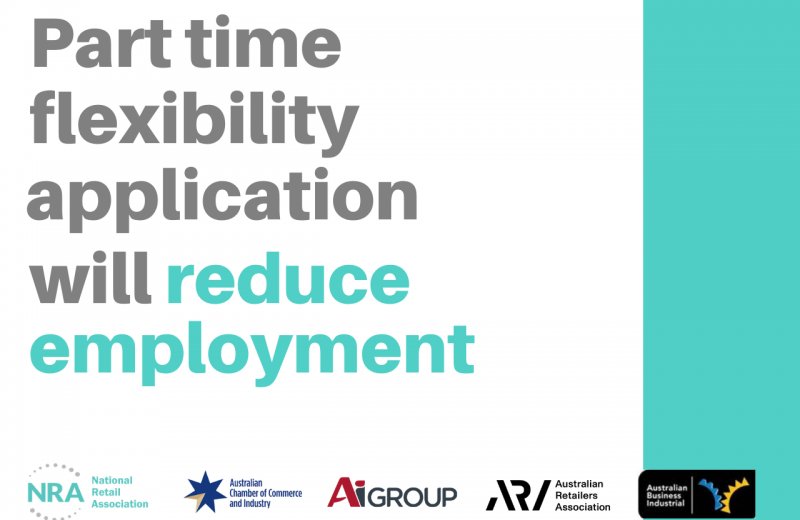An ACTU and COSBOA flexible part-time employment proposal for the General Retail Award is poorly drafted, will add more red tape and risks exposing business operators, including small businesses, to costly disputes and the perils of ‘go away’ money.
The joint Union/COSBOA application to vary the General Retail Award largely resembles what is already contained in the IR Omnibus Bill but with additional compliance burden and risk for employers.
The proposed variation means that every time an employer wants to offer additional hours of work to a part-time employee they will need to enter into a new separate written agreement with the worker.
It also means once an agreement to offer extra hours is made, an employee must be paid for the extra hours even if they do not work the hours.
The extra paperwork and the requirement to pay someone when they didn’t work is not workable for business.
There is no way a business will offer extra shifts to part timers under that arrangement.
Most worryingly the proposal also risks exposing business owners to unnecessary and costly litigation where a part-time flexibility dispute arises.
A major workplace relations concern of small business owners is litigation from unfair dismissal claims. This part-time flexibility proposal further exposes small business owners to the similar risk of litigation and ‘go away’ money.
While this deal appears to have had all the good intentions of creating a part time flexibility arrangement, it is problematic, rushed and will not work in practice for business, big or small.
Furthermore, none of the other employer representative parties currently working on changing part-time provisions in the General Retail Award ongoing Fair Work Commission proceedings were consulted on the deal.
NRA, ACCI, Ai Group, ARA, and ABI look forward to continuing to participate in the General Retail Award proceedings in the Commission and to develop workable award variations. In the meantime, it is essential that the Government’s IR Omnibus Bill is passed by Parliament.

